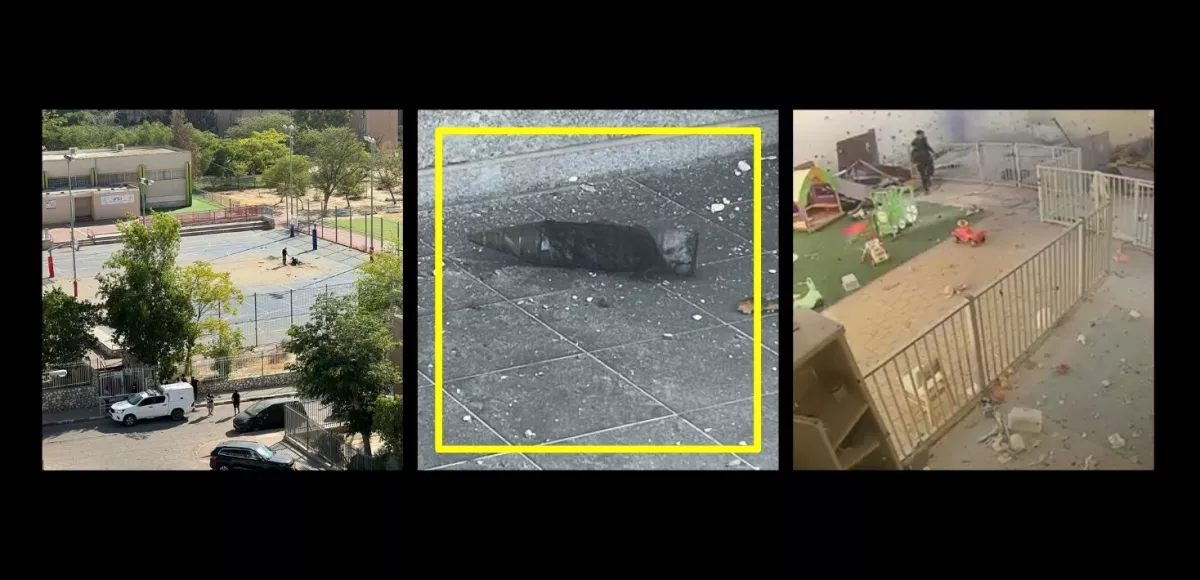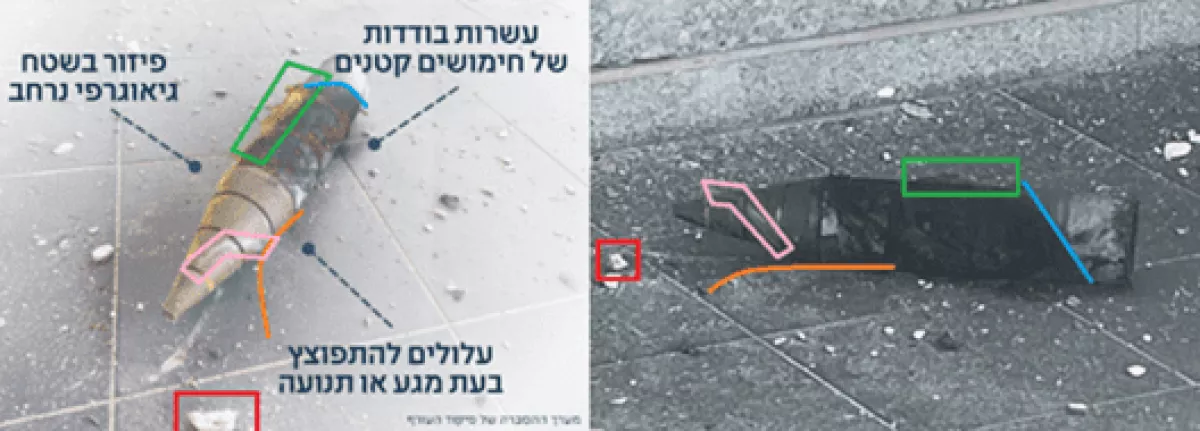Amnesty International: Iran’s cluster bomb strikes on Israel may constitute war crimes PHOTO
Amnesty International has strongly condemned Iran’s deployment of cluster munitions during last month’s armed conflict with Israel, describing the action as a serious breach of international humanitarian law.
According to a statement issued on July 24, Iranian forces launched ballistic missiles armed with submunitions into populated urban areas of Israel during the conflict known as the “12 Day War,” endangering civilians and violating the principles of distinction and proportionality under the laws of war.
Amnesty International reported that its investigators analysed verified photos and videos showing evidence of cluster munitions used in the attacks. Media reports indicated that these munitions struck the densely populated Gush Dan metropolitan area, which includes Tel Aviv, on June 19.
Further strikes followed in the city of Beersheba in southern Israel on June 20, and in Rishon LeZion, just south of Tel Aviv, on June 22. In Beersheba, the submunitions hit a school and a basketball court. Although multiple impact craters were found in all three locations, consistent with the use of cluster munitions, no casualties were reported.
“Cluster munitions are inherently indiscriminate weapons that must never be used,” said Erika Guevara Rosas, Amnesty International’s Senior Director for Research, Advocacy, Policy and Campaigns. “By using such weapons in or near populated residential areas, Iranian forces endangered civilian lives and demonstrated clear disregard for international humanitarian law.”
She emphasised that civilians — especially children — face the greatest danger from unexploded submunitions, which can remain deadly long after an attack has ended. “Iranian forces’ deliberate use of such inherently indiscriminate weapons is a blatant violation of international humanitarian law,” Rosas added.
Under customary international humanitarian law, the use of weapons that cannot be directed at specific military targets is prohibited. Launching attacks that do not distinguish between civilians and combatants or that cause disproportionate harm to civilian life and property may amount to war crimes.
Cluster munitions are designed to disperse multiple smaller explosive devices, or submunitions, over a broad area, typically through rockets, artillery, or air-dropped containers. These submunitions often scatter across zones as large as a football field and frequently fail to detonate upon impact, leaving dangerous unexploded ordnance that can remain hazardous for years or decades.
Reports suggest that the Iranian ballistic missiles used during the conflict released their submunitions several kilometres above the ground, dispersing them across vast residential zones and leaving behind unexploded devices in civilian areas.
The Convention on Cluster Munitions, which came into force on August 1, 2010, prohibits the use, production, stockpiling, and transfer of such weapons. Neither Iran nor Israel is currently a party to the convention.
Amnesty International reiterated its longstanding call for all countries not yet bound by the convention — including Iran and Israel — to accede to the treaty and fully adhere to its provisions.
The organisation also confirmed that it sent formal inquiries to Iranian authorities on July 15, 2025, regarding the reported use of cluster munitions. As of the time of publication, Amnesty said it had not received any response.
By Tamilla Hasanova










